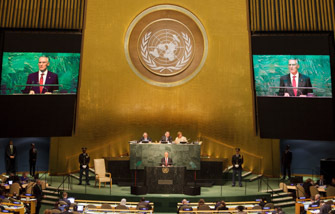

The President of the Republic returned to Parliament, without enacting it, Parliamentary Decree No. 61/XII, which establishes principles for the use of liquid petroleum gas (LPG) and natural compressed and liquid gas (NG) as fuel for vehicles.
Click here to read the full text of the Message that the President of the Republic addressed to Parliament concerning this issue:
“Madam Speaker,
Excellency,
Having received, to be enacted as Law, Parliamentary Decree No. 61/XII, which establishes principles for the use of liquid petroleum gas (LPG) and natural compressed and liquid gas (NG) as fuel for vehicles, I have decided, notwithstanding the merit of the legislation not being in any doubt, in the terms of article No. 136 of the Constitution, not to enact this bill, based upon the following premises:
1. The regime submitted for enactment contains, in its article No. 11, a provision that foresees “The checking of the provisions of this legislation as well as the typifying and quantification of the applicable administrative offences due to the infringement of the respective rules is defined in the ordinance referred to under article No. 3”.
2. The regime currently in force that regulates the use of liquid petroleum gas (LPG) as fuel for vehicles and the certification of the adaptation of motor vehicles to the use of LPG by the installing or repairing body, approved by Decree-Law No. 136/2006, dated 26 July, and the regime that establishes the conditions in which natural compressed gas (NCG) is accepted as fuel for use in vehicles, approved by Decree-Law No. 137/2006, dated 26 July, foresee, respectively in articles Nos. 12 and 15, the typifying and quantification of the applicable administrative offences due to the infringement of the respective rules.
3. The draft bill Nº 169/XII that originated the bill now submitted, contained, in its article No. 12, the typifying and quantification of the applicable administrative offences, altering the regime currently in force. It is thus difficult to understand that the final approved text attributes the typifying and quantification of the referred administrative offences to a mere administrative ordinance, which results in a degrading of rulings, contrary to the long rooted practice of approval of penalty clauses through a legislative act, and would constitute a grievous precedent.
4. In addition, the solution contained in the approved Decree raises serious juridical and constitutional reservations that, when in force, could lead to difficulties in the application of the regime in question.
5. The convenience is not being refuted of a bill that, similarly to what is occurring in other countries, aims to encourage a greater use of liquid petroleum gases and natural compressed and liquefied gas as fuels for vehicles.
6. However, especially due to the relevance of this regime, its application should not be hindered by deficiencies that could constitute barriers to the full achievement of the bill’s objectives.
7. As I have asserted on several occasions, the rigour and quality of legislation are essential premises to achieve citizen’s trust for institutions and for the fulfilment of the Rule of Law.
Due to the above reasoning I have decided to return Decree No. 61/XII to Parliament, without its being enacted, in order that this issue may be subject to review by Members of Parliament.
With all due regard,
Palace of Belém, 10 August 2012
The President of the Republic
Aníbal Cavaco Silva”
2012-08-10
© 2006-2016 Presidency of the Portuguese Republic
You have gained access to the records of the Official Site of the Presidency of the Republic from 9 March 2006 to 9 March 2016.
The contents available here were entered in the site during the 10 year period covering the two mandates of President of the Republic Aníbal Cavaco Silva.